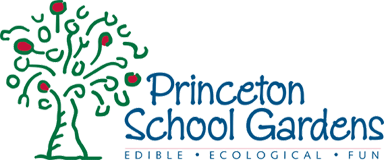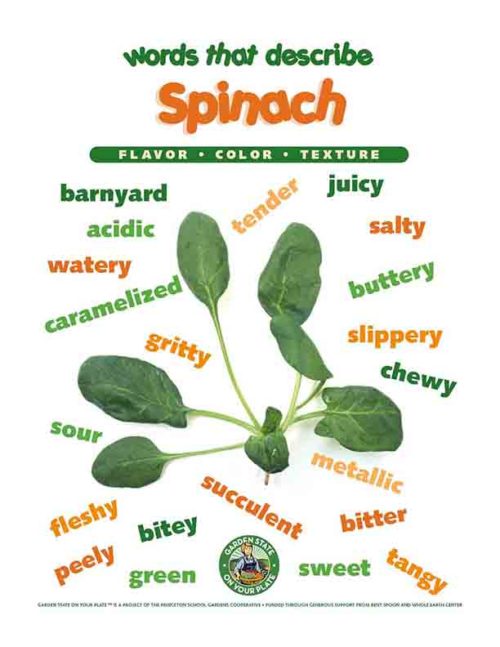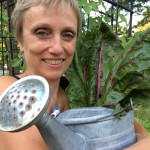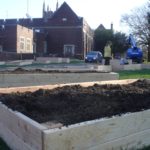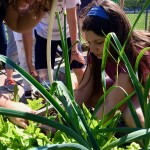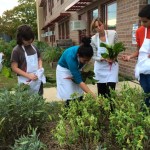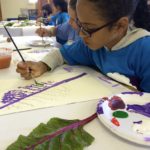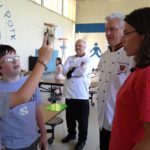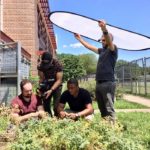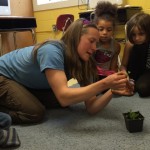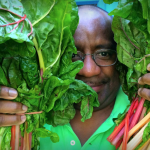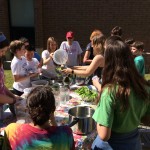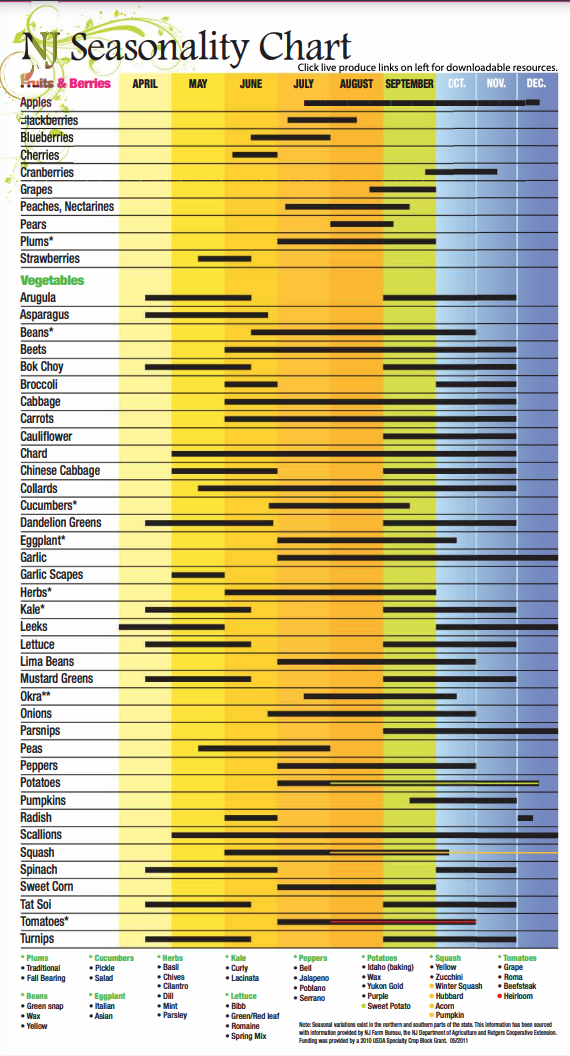Growing food systems literacy since 2005
The Princeton School Gardens Cooperative is a 501(c)3 that fosters equitable garden- and food-based education in the classroom, cafeteria and community. The PSGC uses local and seasonal foods to connect students to their own bodies, to each other, to their families and communities, to curriculum, and to the world and its climate. Our vision: All graduates, and by extension, their parents, know how to grow a salad, read a label, set a table, cook for their community, and understand that their choices help shape the future we share.
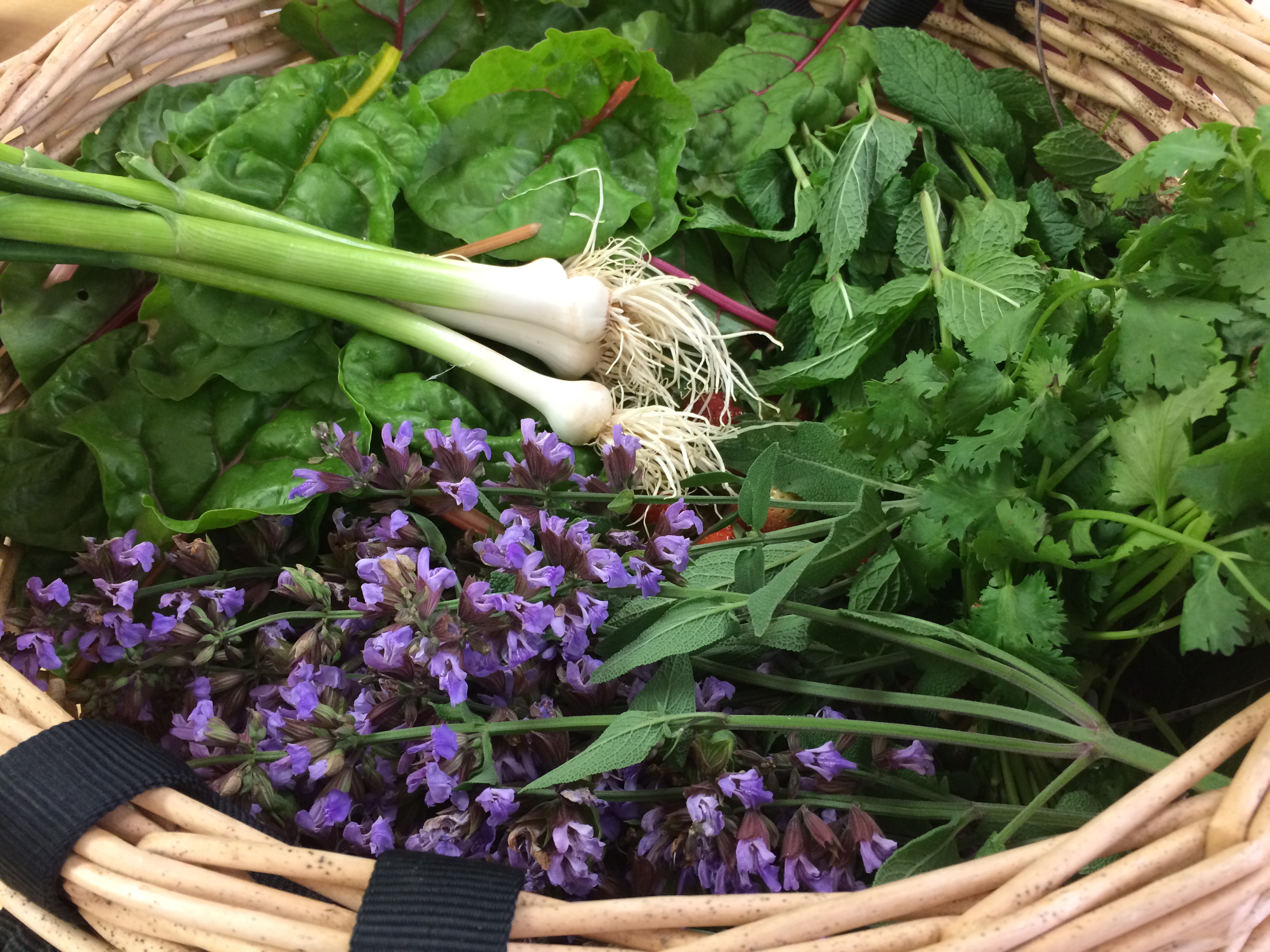
Interdisciplinary Food Systems Literacy Programs & Projects
LINK: Food Systems Literacy, K-12

 A collaboration between Princeton Public Schools (PPS) and Princeton School Gardens Cooperative (501c3) has produced a Food Systems Literacy program to optimize largely untapped campus resources of school food, campus lands, the Teaching Kitchens, and diversity of the students themselves for illustrating and amplifying curriculum and to nurture the wellbeing of students, faculty, staff, and administration. The program, a culmination of the nearly 20-year partnership of Princeton School Gardens Cooperative and Princeton Public Schools, began in spring 2023. PPS welcomes its new coordinator, Shannon Barlow MPH, who works behind the scenes. Read more about the work of the Food Systems Literacy coordinator here.
A collaboration between Princeton Public Schools (PPS) and Princeton School Gardens Cooperative (501c3) has produced a Food Systems Literacy program to optimize largely untapped campus resources of school food, campus lands, the Teaching Kitchens, and diversity of the students themselves for illustrating and amplifying curriculum and to nurture the wellbeing of students, faculty, staff, and administration. The program, a culmination of the nearly 20-year partnership of Princeton School Gardens Cooperative and Princeton Public Schools, began in spring 2023. PPS welcomes its new coordinator, Shannon Barlow MPH, who works behind the scenes. Read more about the work of the Food Systems Literacy coordinator here.LEARN: Hands-on, five-senses scholarship of place, palate, planet, people

At first glance, the Garden State on Your Plate program is simply palate education, bringing chefs and local farmers into public school cafeterias at lunchtime to serve samples of simply prepared, seasonal and fresh produce.
But that just scratches the surface. This farm-to-school program, introduced in 2010, deliciously connects subject to subject, while linking students to their own bodies, to each other, to their communities, and to the world around them. It is the underpinning of food systems literacy efforts at Princeton Public Schools.
The program uses as its primary tool a seasonal produce item – nuts, seeds, fruits, vegetables, berries, legumes, beans – for each month of the school year, offering curricular, cultural, and newsworthy connections to faculty, administrators, and parents. These NJ-grown produce items are among those that school-age children aren’t consuming in sufficient quantities, according to the Dietary Guidelines for Americans.
Outdoors, on campus lands in the surrounding community, and in partnership with the district’s facilities and land stewardship departments, spans the study of interacting natural systems required for all life.
Edible Campus educators – some specializing in garden crops, others in food forest crops – at each of the district’s six campuses coordinate the planting, tending and harvesting of the items through the growing season, working alongside faculty members who bring students outside, onto campus lands, for relevant research and for respite.
Indoors, informational posters featuring the produce item are displayed for the month in the halls and in the cafeterias and in the libraries of each of the district’s six schools. An online newsletter recaps the posters and offers recipes and growing tips.
In partnership with the district’s food service company and with PPS faculty, each of the district’s cafeterias spotlights the produce item on the lunch line once a week. On another day of the same week, the cafeteria hot line features the produce item as a recipe component celebrating global cuisines, including Pan-Asian, Latino-Hispanic, Indian/Middle Eastern, and Black Diaspora. These foods make direct links to:
• curriculum, including and especially the NJ Climate Change Education mandate;
• global cultures and cuisines ;
• the PPS Teaching Kitchens;
• the origins of the food, the cuisine, and its pathways to the Garden State;
• current events; and,
• campus lands, each school’s Edible Gardens, and the New Jersey food shed.
The program created for and in partnership with Princeton Public Schools aims to build community of the table, increase quality of the school food offerings, and increase participation in the National School Lunch Program and School Breakfast Program by everyday incorporation of these produce items – beyond their month in the spotlight. Produce items for the 2024-25 school year:
| September – tomatoes (Hispanic Heritage) | February – collards (Black History |
| October – carrots (Diwali Festival of Lights) | March – chickpeas (Nowruz) |
| November – cranberries (Native American Heritage | April – lettuces (Arab Heritage) |
| December – winter squash (Christmas/Hannukah/Kwanzaa | May – bok choy (Asian Pacific Islander |
| January – sweet potatoes (Chinese New Year) | June – spinach (Caribbean History) |
GROW Edible Gardens & Food Forests
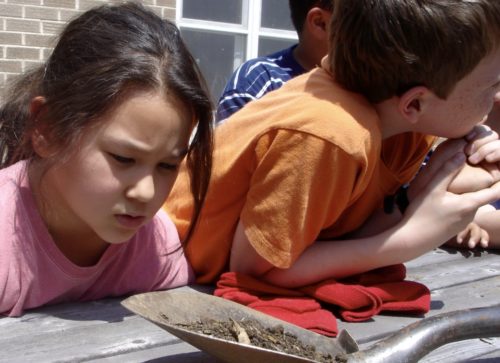
Collections of Edible Gardens and nascent food forests at each of the schools connect students to the natural systems and ecosystems (including worms and bugs) that are prerequisites to life on Earth. Students, working with faculty and Edible Gardens Educators, grow the 10 Garden State on Your Plate produce items for the school year, among other crops, at each of the district campuses. Dr. Joy Barnes-Johnson, Science Supervisor, is our Edible Gardens liaison.
PHS+PMS: Planting a Food Forest 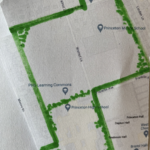 Plans are under way to connect the campus of Princeton High School with Princeton Middle School with an eight-layer food forest. Students, working with faculty and community experts, are adapting the “emerald necklace” linear system of linking parks and parkways designed by Frederick Law Olmsted to connect the Boston Common.
Plans are under way to connect the campus of Princeton High School with Princeton Middle School with an eight-layer food forest. Students, working with faculty and community experts, are adapting the “emerald necklace” linear system of linking parks and parkways designed by Frederick Law Olmsted to connect the Boston Common.
To learn more about food forests, and one just an hour or so away in Philadelphia, click here.
COOK Teaching Kitchens & Moveable Feasts
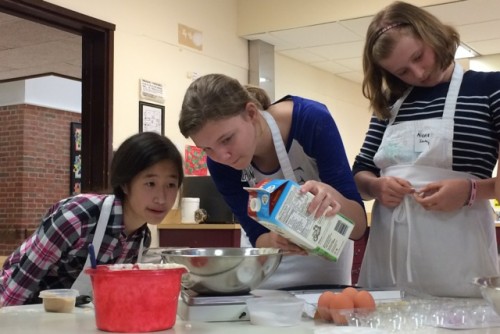
PPS Cooks+Gardens is a hands-on seed-to-table program for middle- and high-schoolers at PPS Teaching Kitchens. Each fall and spring session of this six-week, after-school program teaches students how to grow, harvest, cook and share the 10 Garden State on Your Plate produce items for the school year, along with other crops. The model is grow-it-forward: Spring planting and fall harvests. Jacqueline Katz, Science Supervisor, is our liaison and high-school coordinator for PPS Cooks+Gardens, working with Janet Gaudino, PMS science teacher and in partnership with the PMS Food Science Wellness teacher.
Moveable Feasts
Grant funding in 2010 allowed purchase of Moveable Feasts Kitchen Carts for each of the elementary schools. These carts are now in the process of being updated, beginning with grant funding earned by Louise Senior, Edible Gardens Educator/Steward, at Riverside Elementary School. When fully updated, these Moveable Feast Kitchen Carts will live at each school’s library and can be checked out by faculty and by Edible Gardens Educators for use in the classroom. Carts are customizable, school by school, but generally contain a portable induction burner, induction-friendly cookware, a blender, and an instant pot. The moveable cart at the middle school features an overhead mirror that can be tilted for optimal viewing of food preparation.
GATHER School Meals & Classrooms
The campus as lab concept comes into its own wherever there is food: the district’s six cafeterias, in its Teaching Kitchens, and in classrooms and on campus lands. The primary focus, however, is each school cafeteria. How does school food – served, cooked, grown, studied – illustrate and amplify curriculum, specifically climate destabilization? What does delicious mean? Does the food on the trays reflect the student population? How do cafeterias support zero hunger? Do they support optimal health and wellbeing? Are hyper-processed foods on the lunch, breakfast, or snack menu? Are sugars replaced with other sweeteners? Do the foods served and grown and used for school meals reflect awareness of climate change and a desire to minimize impact and to reduce wasted food and food waste? Do each school’s Edible Gardens offer snacking opportunity and match the foods students see on their trays? How do Teaching Kitchens and Edible Gardens work with school meals to support best practices in fueling students’ readiness for learning, and in cultural resonance?
NO WASTE How low can you go? Zero?
Two climate solutions – plants-rich diet and reduced food waste – are Nos 3 and 4 on Project Drawdown’s most effective existing solutions to climate change. And they’re the two that offer the most individual agency for students, faculty, staff, and administration at PPS. Read more here. An earlier version of the methane pie chart from EPA offers softer numbers, but offers reason enough to act. Enteric fermentation (25%) is from cow burps, mostly; add to that manure management (9%), and then, landfills, at 16%, and the food we choose to eat and how what we do with uneaten/discarded food and organic matter adds up to a full 50%.
